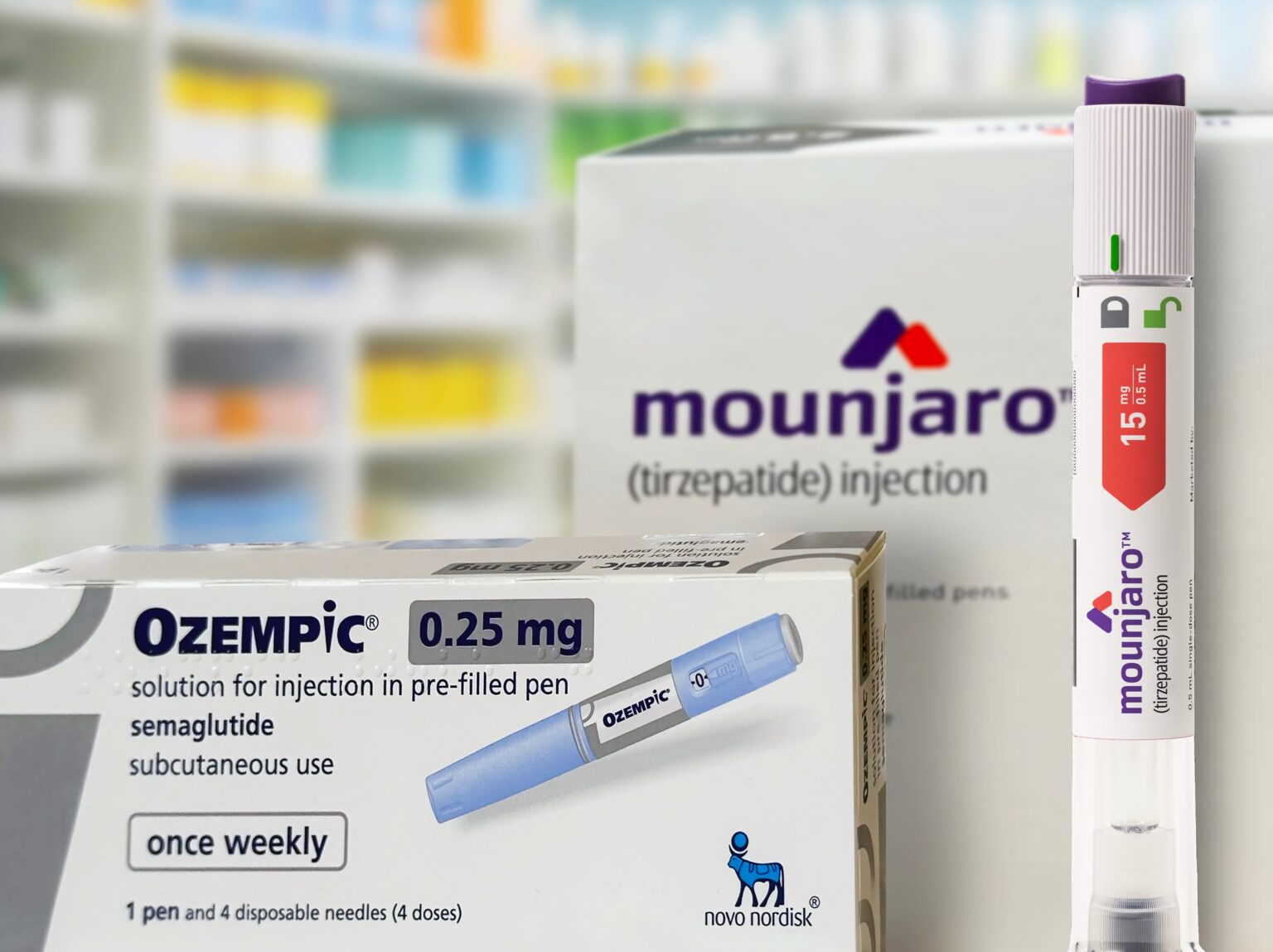If you’ve undergone a bariatric surgery, then you know the hurdles and hoops that has to be jumped through to get the treatment guaranteed to help you overcome severe obesity. The invasive procedures physically make the stomach smaller in one way or another, so you feel fuller sooner and consume fewer calories. It’s a total lifestyle change and transformation, one that can be tough to push through.
Once a large amount of the weight has come off, some patients may experience a plateau in their progress, and some may see the effects of the surgery waring off and old habits creeping back in causing a little weight regain. That’s why there can sometimes be a need for medical support to maintain or enhance the weight loss journey.
Weight loss medications can be a powerful complementary treatment option following a stall in bariatric surgery progress, but many patients may be rightfully wondering about the safety and efficacy of using prescription weight loss medications this way.
At Bodyline, our team of experienced weight health professionals have worked with men and women at every stage, whether they’re at the very beginning of their weight loss journey or whether they’re coming to us after a bariatric surgery to boost their weight loss results.
We wanted to provide you with the information you might need to make an informed decision after bariatric surgery, if you’re considering weight loss medications during a stall in progress.
If you have any questions, don’t hesitate to get in touch by calling us on 0800 995 6036.
How to manage weight regain or plateau after bariatric surgery
Gaining weight in the years following bariatric surgery is not an uncommon occurrence. One scientific review looked at the prevalence of weight regain in a wide range of bariatric surgery trials, and they concluded that weight regain happens to more than a quarter of all participants on average, but can be as high as 37%, in the seven years following the surgery. Another analysis looking at a large range of studies on gastric sleeves found that that around 76% of patients had regained the weight within 6 years.
Weight regain is nothing to be ashamed or embarrassed about, and there is a way forward to ensure you can move through this hurdle and get through the other side of your weight loss journey. Weight loss medications can therefore be an effective tool after bariatric surgeries, but ONLY when safely monitored and supported by healthcare professionals and CQC regulated is recommended.
Different medications work with different mechanisms of action, some by targeting gastrointestinal hormones and others by targeting the appetite centre of the brain. When prescribed to eligible patients, they can produce incredible results and aid in the development of lifelong healthy habits to ensure weight loss is sustained as long as possible.
Weight Loss Injections: Mounjaro After Bariatric Surgery
Mounjaro (tirzepatide) is the newest generation of weight management medications, offering a unique dual GIP and GLP-1 receptor agonist mechanism. Studies indicate superior weight loss results compared to other injectable medications, with the average patient losing up to 25% of their starting weight.
According to the Medicines and Healthcare products Regulatory Agency (MHRA), the criteria for Mounjaro’s prescribing eligibility is as follows:
· Adult patients with a BMI of 30 or more (obesity)
· Adults with a BMI between 27-30 (overweight) who also have weight-related health problems such as prediabetes, high blood pressure, high cholesterol, or heart problems.
However, it’s important to note that patients require close monitoring due to the interaction between the medication and their altered digestive system.
Weight Loss Injections: WeGovy After Bariatric Surgery
Wegovy (semaglutide) has become a popular medical weight loss injection administered weekly to help regulate appetite and food intake. While similar to Mounjaro, the active ingredient semaglutide targets the GLP-1 receptors, encouraging slowed digestion, increased feelings of fullness, and reduced calorie intake. Studies show semaglutide helps the majority of users can lose up to 15% of their starting weight in 68 weeks.
It’s particularly beneficial for patients experiencing weight regain years after surgery.
According to the National Institute for Health and Care Excellence (NICE), Wegovy can be prescribed to ‘adults with an initial BMI of ≥30 kg/m2 (obesity), or ≥27 kg/m2 to <30 kg/m2 (overweight) in the presence of at least one weight-related comorbidity’.
Again, Wegovy patients will require close monitoring due to the interaction between the medication and their altered digestive system.
Weight Loss Injections: Saxenda After Bariatric Surgery
Saxenda (liraglutide) is different to Mounjaro and WeGovy as it’s a daily injectable medication that can be used after bariatric surgery to ensure effective sustained weight loss. It works similarly to other GLP-1 receptor agonists to help control appetite and food intake.
Saxenda has been shown to support weight loss in post-bariatric surgery for those struggling with weight regain as it encourages a reduced caloric intake.
Alternatives: Phentermine or Diethylpropion After Bariatric Surgery
Phentermine is considered an effective tool to mitigate weight gain following gastric surgeries, as studies show that it can significantly reduce instances of weight regain.
Phentermine is an oral slimming pill that belongs to a class of drugs known as appetite suppressants. It works on neurotransmitters in your brain, primarily norepinephrine, serotonin, and dopamine, which help reduce hunger signals and control cravings.
The medication is recommended for short-term use in the management of obesity, prescribed for 3-months at a time, and regular breaks are required. Post bariatric surgery, it’s important to be used in conjunction with a fully supported treatment programme so that side effects and progress can be effectively monitored.
Diethylpropion is another oral weight loss medication that can be used if Phentermine isn’t appropriate/suitable for patients. It also works as an appetite suppressant by targeting the appetite centre of the brain and can be prescribed to aid in post-surgery weight loss efforts in instances of weight regain.
Bodyline’s Post-Bariatric Support
At Bodyline, we offer comprehensive post-bariatric care including:
· Detailed medical evaluations for medication suitability
· Regular monitoring and treatment plan adjustments
· Comprehensive dietary and lifestyle support
· Long-term follow-up care
To determine the most appropriate weight loss medication for your post-bariatric journey, contact Bodyline today. Call 0800 995 6036 or complete an enquiry form for a call back.
Bodyline works, and Bodyline cares.
Contact Bodyline today to find out more about our safe and effective weight loss programmes and range of treatment options.















